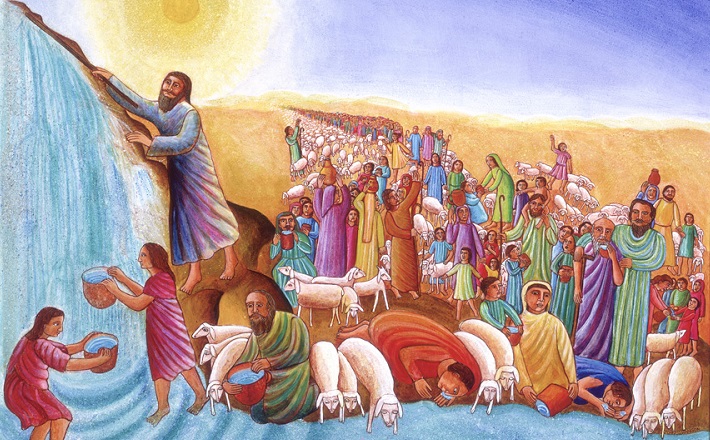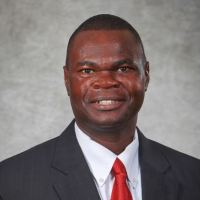Commentary on Acts 13:1-3; 14:8-18
Theologically and spiritually, bible narratives, especially the Book of Acts invite Christian believers to be drawn, shaped and formed by what they read.
We are called both to embody the stories and to be advocates for these stories in and around the world. Paul’s missionary journeys are fascinating but readers and scholars have tended to relegate these journeys to the realm of history. Instead of the reading them as spiritually invitational stories, we read as if we are gleaning historical facts and possibly information.
Acts 13: 1-3 signals to readers about the central role of the Holy Spirit in the mission of God; because, none other than the Holy Spirit summons the Antioch teachers and prophets to “set apart for me Barnabas and Saul for the work to which I have called them.” Therefore, the entire narrative of Acts, is imbued with the Holy Spirit who is behind all that happens in the book, and consequently in the Church then and now.
The failure of the Church to discern and listen to the directives of the Holy Spirit, will possibly lead to becoming an ideologically-led instead of a Trinitarian-led movement. Without the Holy Spirit calling people as much as was done to Barnabas and Saul, mission as Acts portrays it will not be possible.
Acts reminds believers that the Church God envisions is one of cultural, ethnic, gender, and linguistic diversity. Humanity’s story does not stand solo, but our humanity is intertwined in others who may not be biologically related to us but through the power of the Holy Spirit, we become a mission-oriented human family. In other words, Paul’s so-called missionary journeys are indeed meant for 21st century readers and those who follow to be part of the mission. This can be done by allowing the Holy Spirit to energize us in crossing national, cultural, ethnic, tribal and gender boundaries as we participate on the never-ending narrative of God’s mission.
In any case, all Scriptures should be read as missional in the sense that the New Testament — if not the entire Canon — is significantly missional. It was not only in Judea but also in the Mediterranean world that God’s Word was fully shaped in an engagement with various worldviews. It is noteworthy to underline that to witness is missional, and the mission of God is at its best witnessing (Acts 8: 26-40).
On another angle, Christians are perhaps missional in the sense that through baptism and belief in God, Son and the Holy Spirit and resurrection, the authentic identity of God’s people comes to light. The portrayal of Barnabas and Saul being summoned by the Holy Spirit and commissioned by the Antioch church in Acts 13-14 to cross boundaries for the sake of God is a reminder to the 21st century church to reconsider what constitutes Christianity. In the context of the Acts narratives, our faith in God transforms all we think about being liberal, conservative, centrists or neutral, and instead believers are called to discern their spirituality. Using the Book of Acts as a mirror, our self-claimed identities may need to be rebaptized with the hope that we can become spiritually mature in a Global Christian world (see John 3: 1-17; see also Mark 12: 28-34).
While mission work is all that the local church does, the essence of authentic mission and its agents are authorized by the Holy Spirit who through empowering believers can enable effective results to be manifested. Thus, healing, miracles, signs and wonders are a manifestation of the Holy Spirit’s power working to transform lives through Barnabas and Saul, and indeed the Church (14: 8-18). Biblical narratives, even in the Hebrew Bible are authenticated by miracles of healing and other supernatural wonders.
Luke’s narratives counter our 21st century ecclesial strategies of doing mission, ministry, evangelical and church revival. The what should be done in our context question cannot be fully addressed in this commentary. But we should note that, church leaders and lay people should first and foremost desire and be hungry for the Holy Spirit and the aftermath of this will be God’s doing. In other words, without the Holy Spirit’s power, there will be no 21st century church reformation and revival. Acts 14: 8-18 is a narrative of both religious-cultural and Holy Spirit worldviews of which the former needs to be graciously understood and at the same time be preached to.
Paul and Barnabas did not shy away from proclaiming the gospel in Lystra, but they were eager to teach religious communities about the faith as a condition of salvation. Evangelism at its best is not to those in the elite societies but those in rural and ghetto settings must also be taught the faith in God. In light of Acts 13-14, it is probably safe for all our ecclesial efforts to take closer look at Acts and reconsider using Luke-Acts as guide to help leaders refocus the evangelical, missional and faith formation tasks of the 21st century world.
All in all, mission work in and out of context must be undergirded and authenticated by the Holy Spirit.
PRAYER OF THE DAY
God of all, you opened your gates wide to receive all your children into the heavenly kingdom. Help us to be vehicles of promise and proclamation for all who will listen, so that every soul might live in your grace. We pray these things in the name of Jesus Christ, our Savior and Lord. Amen.
HYMNS
Signs and wonders ELW 672
When the poor ones ELW 725
Lord, dismiss us with your blessing ELW 545, H82 344, UMH 671, NCH 77
CHORAL
Because he lives, Sally DeFord


May 12, 2019